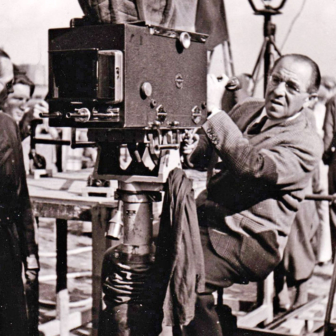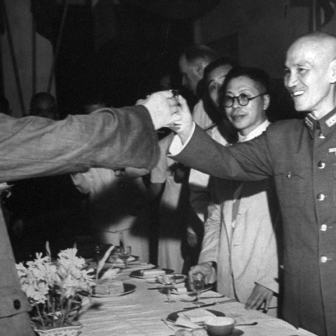“Chinese security agencies have masterminded the wholesale theft of American technology — including cutting-edge military blueprints,” US vice-president Mike Pence told an audience at the conservative Hudson Institute in Washington last week. His vision of China’s relationship with the United States was replete with references to espionage in all its forms. “China has built an unparalleled surveillance state,” he said, “and it’s growing more expansive and intrusive — often with the help of US technology… [It is] rewarding or coercing American businesses, movie studios, universities, think tanks, scholars, journalists, and local, state, and federal officials.”
While the speech may have failed in its main goal — to prove that “China wants a different American president” — the consensus among China-watchers is that most of what Pence said was not fiction, or fake news, or even alternative facts. Bill Bishop, editor of the Sinocism newsletter, described it as “a useful articulation of the problems the US sees with China.”
In a recent episode of The Little Red Podcast, Louisa Lim and I tried to get a picture of modern Chinese espionage. We sat down with two political journalists — Adam Brookes, former China correspondent for the BBC, and Chris Uhlmann, chief political correspondent for Channel Nine — who have both turned their hand to China-focused spy novels.
Brookes’s account — in the form of the Philip Mangan trilogy — ranges from the back alleys of Beijing to the sleepy tax haven of Suriname, and from the bad lands of China’s drug-riddled southwest border to English university campuses where the children of Communist Party bosses get the best education offshore accounts can buy. The depth of Brookes’s knowledge of China is evident from the first page, and the novels are based partly on how his life might have panned out had he responded to a “dangle.” An elderly man — most likely from the Chinese security services — turned up at his office and offered him classified documents related to China’s missile program in exchange for introductions to the “right people” at the British embassy. After several weeks of intense pursuit, the man gave up.
Uhlmann’s novels, set in Canberra and penned with former News Corp journalist Steve Lewis, have become the basis for a surprise Foxtel hit, Secret City (Canberra dramas don’t usually rate). The novels, exploring the intersection between Chinese and US influence operations and Australian politics, were so close to the bone that the pair had to change no fewer than fourteen characters to skirt Australia’s absurd defamation laws.
Early in our discussion it was apparent that our two guests didn’t entirely agree about what forms Chinese espionage took. Uhlmann weighed in with the “thousand grains of sand” theory of Chinese espionage — the view that it is mostly driven by large volumes of information from a huge number of sources. Not quite President Trump’s “almost every student is a spy” worldview, but this has long been the mainstream view of Chinese spycraft, and is not without basis. The Xinhua news agency, Confucius Institutes and other institutions are known to act as data-collection agencies for the Chinese state. But it is worth remembering that the United Front Work Department and its shadowy proxies keep a close eye on Chinese students in Australia precisely because the Chinese state doesn’t trust them.
Brookes advanced a different theory. China’s methods have more in common with the Soviets, he believes, who provided the blueprints for Beijing’s peak spy agencies, the Ministry of State Security and the Second Department of General Staff Division of the People’s Liberation Army. Brookes raised the case of the unfortunate Glenn Shriver, which sufficiently alarmed US officials that the FBI made a cheesy cautionary video based on his story, with Shriver providing the afterword: “Espionage is a very big deal. You’re dealing with people’s lives.”
Shriver’s recruitment as an American student in Shanghai by “Amanda,” who initially encouraged him to apply for a job with the State Department (he failed the exams twice) and then to get on the recruitment track for the CIA (he panicked during a lie detector test and was later arrested for lying to the US government), confounded two prevalent narratives about Chinese spy recruitment. It targeted a non-Chinese American; and, rather than appealing to love of the motherland or anti-American feelings, it involved throwing large sums of cash at a penniless student. While it may seem comical, Shriver was surely not the only one targeted in this way. While other students reported being approached by a woman fitting Amanda’s description, Brookes says no one else who took up her offer was caught.
For his part, Uhlmann cites a source who claimed that Australian agencies “had tracked 120 groups, not individuals, but groups of foreign intelligence service officials crossing our borders in the last twelve months. And most of them came from China.” He argues that much of this activity blurs espionage, sharp power and influence operations to target Australian citizens and Chinese nationals who are deemed to threaten the party’s interests.
Attitudes have shifted — Deng’s doctrine of “hide your strength and bide your time” has been set aside in the South China Sea and elsewhere — and so too have resources. The Chinese state and Chinese companies now have the capacity to undertake operations that were once the sole privilege of Western powers.
Whereas in the past, commercial espionage verged on the comical — an account from the 1980s tells of a Chinese scientific delegation to a trade show in Paris dipping their ties in a photographic solution made by the German firm Agfa with the hope of analysing the solvent later — operations are now well resourced. The two-year FBI operation that led to the conviction of Mo Hailong for stealing genetically modified seedlings from a host of US agribusinesses found that a team of at least six had been digging around the Iowa cornfields. A link to the Chinese state was never proven, and the rest of Mo’s team had the smarts to escape.
Brookes makes the excellent point that we should consider the effect of full-scale electronic surveillance of China by US agencies on the Chinese leadership’s thinking. It certainly does nothing to reduce Beijing’s paranoia. And, as Pence admits, US tech firms have profited from the expansion of China’s domestic surveillance state. The vice-president also drew welcome attention to the plight of the Uighurs, but the Chinese state has used the West’s counter-extremist rhetoric since 11 September 2001 to frame Uighurs and other minorities, and worked closely with successive US administrations on counterterrorism.
In terms of espionage, from China and elsewhere, the rub for Australia and the United States is how to respond. The principles in Pence’s speech — “fairness, reciprocity and respect for sovereignty” — sound fine, but can readily lead to arguments for more domestic surveillance and restrictions on freedom of speech. Repression is unlikely to give pause to a regime that is veering towards totalitarianism. •




